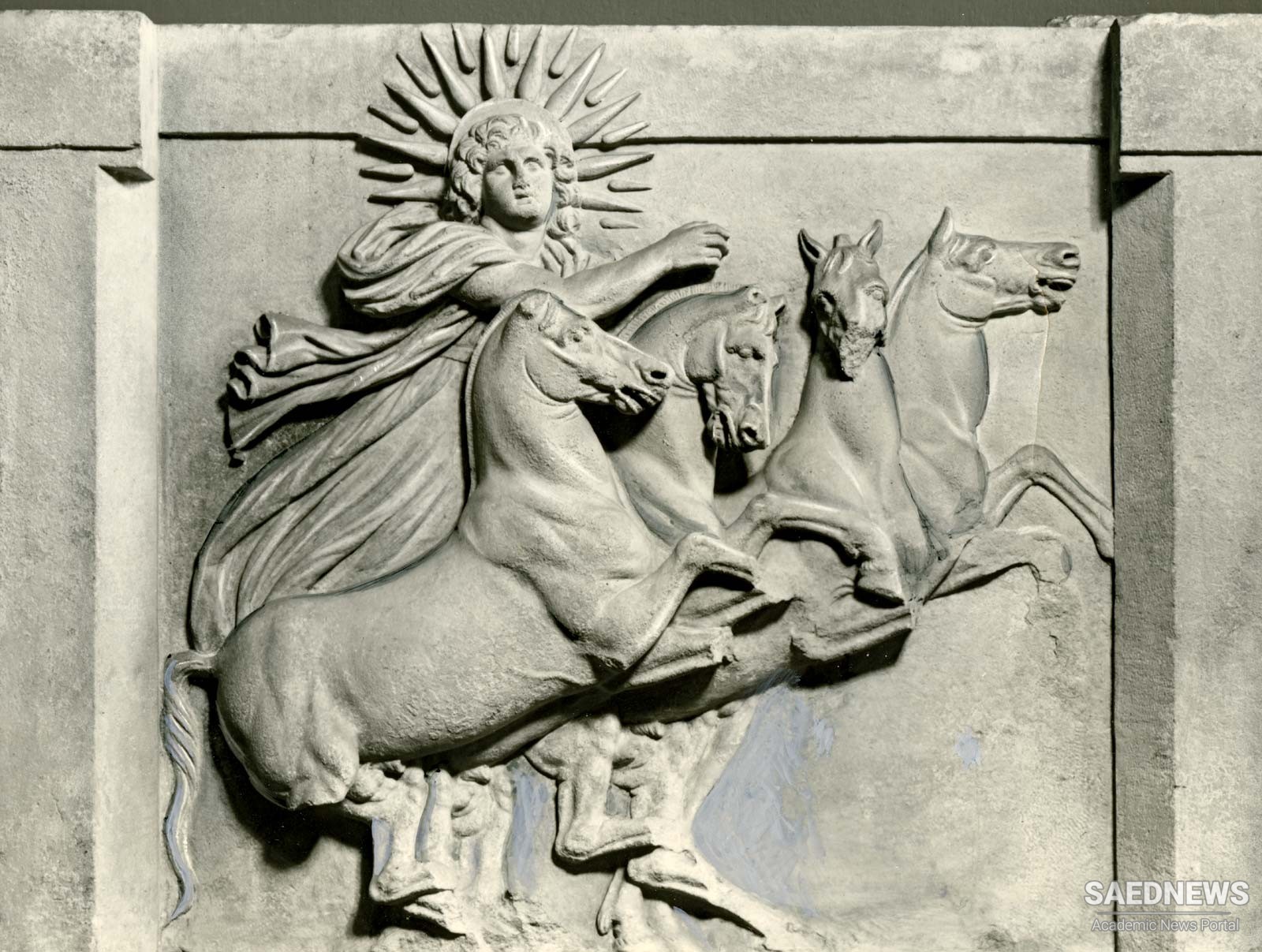They had their limited circle of worshippers, but they too developed if the circle was extended. The population of a district and its importance might increase, and with this the importance of the god increased also. The god might also grow independently of the place. The circumstances which in modern times and even in ancient Greece enhanced the belief in a certain deity and created centres of pilgrimage must be presumed to have been present, although to a less extent, in the earlier period also. The position to which the local gods attained would depend on circumstances insufficiently known to us; we can only surmise that the character of the people and even accident played a part in them. The Semitic religion affords an example of a development in which the local gods predominate.
The local Baalim, alike in nature, different in locality, took over general functions and even became sun-gods. Every town had its deity which provided for all its simple needs. Within the tribe monotheism prevailed: the- gods of the different tribes were friends or foes according as the tribes themselves were friendly or hostile. In a higher culture such as the Babylonian we further find the phenomena of Nature distributed among the gods, while the latter, in consequence, tend to acquire a universal character. But so strong was the localization of the Semitic divilllties that the general functions were distributed among the city-gods, the sea. god Ea belonged to Eridu, the sun-god Shamash to Sippar, the moon-god Sin to Ur, and so on. The ruler of the pantheon waS the local god whose city had gained a predominating position over the othcrs-Marduk of Babylon.
These facts are useful in helping us to understand the development in Greece. There the tendency to universality, the distribution of elements and functions among gods who wele everywhere worshipped, proved victorious and forced the local gods into a subordinate position. Local fountain-nymphs and river-gods were certainly worshipped but the god of water was one, Poseidon, who dominated and overshadowed them all. The universal gods even became the individual protectors of the towns, and indeed from this function a. universal city-goddess was developed-Athena. It is certainly true in some ways that Zeus or Athena in Athens is one divinity, in Thebes another, in Sparta still another, and so on, just as the Madonna of different cities varies. but on the other hand it cannot be too emphatically maintained that even in the general consciousness the same Zeus and the same Athena ruled (even though they bore different epithets) in Athens as in Thebes and Sparta and the other cities. A name is a power, and this is also true of names of deities, in regard to their lmity and universality no less than in other ways.
In Greece the great deities grew at the expense of the Nature spirits and local gods. They even made the former their followers and retainers. Artemis was surrounded by mountain- and forest-nymphs, Poseidon by sea-nymphs, Dionysos by Sileni and satyrs. Or they might absorb the collective divinities. Instead of the 'gentle' or the' boisterous' gods here generally appears the ' gentle' or 'the boisterous' Zeus (Zeus Mom· chios, Maimaktes). The greater gods usurped the functions of the lesser, appropriated their names as epithets, or made them their servants and subordinates. Thus, for instance, Apollo appropriated the cult of the pre-Grecian god Hyakinthos.at Amyclac. Hyakinthos was reduced to the position of a hero who obtained a preliminary sacrifice at the festival of Apollo which had once belonged to him and which still bore his name, the Hyakinthia. In the myth Hyakinthos became Apollo's favourite, whom the god slew by accident.


 Shah Abbas the Great and the Ottomans: How Modern Military Technologies Worked?
Shah Abbas the Great and the Ottomans: How Modern Military Technologies Worked?














































